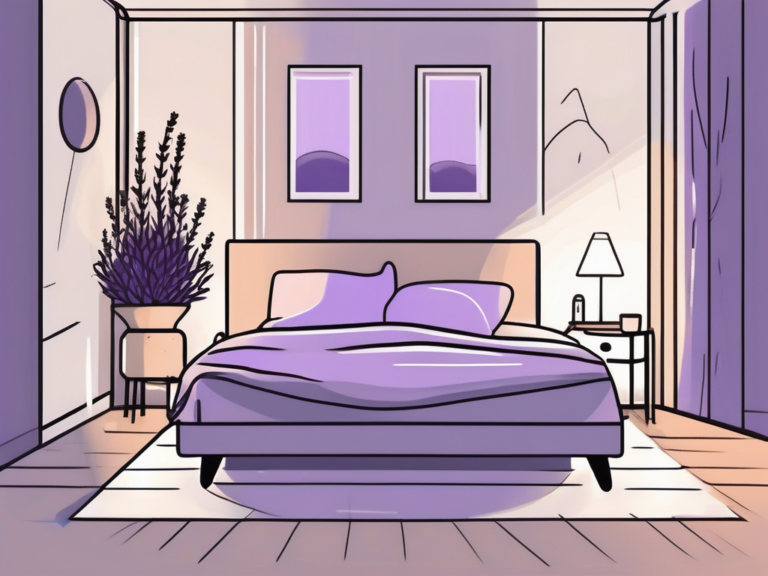What Are 10 Tips to Improve Sleep?
Are you tired of tossing and turning at night, desperately seeking a good night’s sleep? Look no further! In this article, we will explore ten tips to help you improve sleep and wake up feeling refreshed and revitalized. Let’s dive in!
Understanding the Importance of Good Sleep
Did you know that sleep plays a crucial role in your overall well-being? It’s not just about feeling alert and energetic the next day. When you sleep, your body repairs and rejuvenates itself. Lack of sleep can have detrimental effects on your physical and mental health.
The Science of Sleep
Before we delve into the tips, let’s briefly discuss the science behind sleep. When you fall asleep, your brain goes through different stages, including light sleep, deep sleep, and REM sleep. Each stage serves a unique purpose in ensuring your body functions optimally.
During light sleep, your body begins to relax, and your brain waves slow down. This stage is crucial for memory consolidation, as it helps transfer information from short-term to long-term memory. Deep sleep, on the other hand, is when your body repairs tissues, stimulates growth and development, and boosts your immune system. It also plays a vital role in maintaining healthy blood pressure and hormone regulation.
How Lack of Sleep Affects Your Health
Unfortunately, many people underestimate the impact of inadequate sleep on their health. Chronic sleep deprivation can lead to a weakened immune system, increased risk of obesity, diabetes, and heart disease, impaired memory, and difficulty concentrating.
Moreover, lack of sleep can also affect your emotional well-being. It can contribute to mood swings, irritability, and an increased risk of developing mental health disorders such as anxiety and depression. Sleep deprivation can also impair your judgment and decision-making abilities, making it harder to navigate daily challenges effectively.
Furthermore, insufficient sleep can have a negative impact on your physical appearance. It can lead to dark circles under your eyes, dull and dry skin, and premature aging. This is because during sleep, your body produces collagen, a protein that helps keep your skin firm and elastic. Without enough sleep, your body’s collagen production decreases, resulting in the appearance of fine lines and wrinkles.
Establishing a Sleep-Friendly Environment
Creating a sleep-friendly environment is essential for a good night’s rest. Your bedroom should be a sanctuary of relaxation and tranquility. Let’s explore a couple of factors that contribute to a sleep-friendly environment.
The Role of Light and Temperature
Ensuring your bedroom is dark and cool is key to promoting quality sleep. The impact of light and temperature on our sleep cannot be overstated. Exposure to bright light, especially blue light emitted from electronic devices, can suppress melatonin, a hormone that regulates sleep-wake cycles. To combat this, invest in blackout curtains that effectively block out external light sources. If necessary, consider using a sleep mask to create a complete darkness that encourages deep slumber.
Temperature also plays a crucial role in creating an optimal sleep environment. Setting your thermostat to a comfortable temperature, usually between 60 to 67°F (15 to 19°C), can help regulate your body’s internal temperature and promote better sleep. A cool room temperature helps your body relax and prepares it for a restful night’s sleep.
Choosing the Right Mattress and Pillow
Having a comfortable mattress and pillow is crucial for good sleep. Your mattress should provide adequate support for your body, while your pillow should keep your neck and spine properly aligned. The right combination of mattress and pillow can make a world of difference in the quality of your sleep.
When it comes to mattresses, there are various options available, such as memory foam, innerspring, and hybrid mattresses. Each type offers unique benefits and caters to different sleep preferences. Take the time to research and test different mattresses to find the one that suits your body type and sleeping style.
Similarly, pillows come in different shapes, sizes, and materials. Some people prefer firm pillows, while others prefer a softer feel. It’s important to find a pillow that provides adequate support for your neck and keeps your spine aligned. Experiment with different options until you discover the perfect pillow that cradles your head in blissful comfort.
Remember, creating a sleep-friendly environment involves attention to detail and understanding your personal preferences. By optimizing factors such as light, temperature, mattress, and pillow, you can transform your bedroom into a haven of tranquility that promotes restful sleep night after night.
The Impact of Diet on Sleep Quality
Your diet can significantly affect your sleep quality. Making mindful choices with your food can lead to better sleep. Let’s explore a couple of dietary tips to help you sleep soundly.
When it comes to promoting sleep, certain foods can play a crucial role. Including foods in your diet that contain tryptophan, an amino acid that helps the body produce serotonin and melatonin, can be beneficial. Tryptophan-rich foods include bananas, kiwi, cherries, almonds, and whole grains. These foods not only provide essential nutrients but also contribute to a good night’s sleep by aiding in the production of sleep-regulating hormones.
In addition to incorporating tryptophan-rich foods, herbal teas can also have a calming effect on the body, making them a great choice for promoting better sleep. Chamomile and lavender teas, in particular, are known for their soothing properties. Sipping on a warm cup of herbal tea before bedtime can help relax your mind and prepare your body for a restful night’s sleep.
Foods to Avoid for Better Sleep
While certain foods can promote sleep, there are others that can interfere with it, especially when consumed close to bedtime. It’s important to be mindful of what you eat and drink to ensure a good night’s sleep.
Caffeine, nicotine, and alcohol are substances that can disrupt your sleep patterns. Caffeine, commonly found in coffee, tea, and energy drinks, is a stimulant that can keep you awake and make it difficult to fall asleep. Nicotine, often found in cigarettes and other tobacco products, is also a stimulant that can interfere with your ability to achieve restful sleep. Similarly, alcohol, despite its initial sedative effects, can disrupt your sleep cycle and lead to fragmented and less restorative sleep.
In addition to avoiding stimulants, it’s also advisable to steer clear of spicy and heavy meals close to bedtime. These types of meals can cause indigestion and discomfort, making it difficult to sleep peacefully. Opting for lighter, easily digestible meals in the evening can help promote better sleep by allowing your body to rest and repair during the night.
The Role of Exercise in Sleep Improvement
Engaging in regular physical exercise can contribute to better sleep. However, timing and the type of exercise are crucial. Let’s explore how exercise can aid in improving your sleep quality.
When it comes to exercise and sleep, finding the right timing is key. While physical activity is generally beneficial for sleep, intense exercise close to bedtime may have the opposite effect. This is because vigorous exercise can raise your alertness and body temperature, making it harder to fall asleep. To optimize your sleep, it is recommended to aim for earlier in the day for your exercise routine. By doing so, you allow your body enough time to wind down and relax before bed, setting the stage for a restful night’s sleep.
Best Time to Exercise for Optimal Sleep
Avoid intense exercise close to bedtime, as it can raise your alertness and body temperature, making it harder to fall asleep. Ideally, aim to exercise earlier in the day, allowing your body enough time to wind down before bed.
Research suggests that exercising in the morning or early afternoon can have the most positive impact on sleep quality. By engaging in physical activity during these times, you can take advantage of the natural rise and fall of your body’s internal temperature, known as the circadian rhythm. This rhythm plays a crucial role in regulating sleep-wake cycles, and exercising at the right time can help synchronize it with your sleep patterns.
Types of Exercise That Aid Sleep
Engaging in activities like yoga, Pilates, and gentle stretching can help relax your mind and body. These low-impact exercises promote flexibility, relieve muscle tension, and enhance relaxation, making it easier to achieve a restful sleep.
Yoga, in particular, has been shown to have numerous benefits for sleep. The combination of gentle movements, deep breathing, and mindfulness can help calm the mind, reduce stress, and release tension in the body. This mind-body practice has been found to improve sleep quality and increase overall sleep duration. Additionally, Pilates focuses on core strength, flexibility, and body awareness, which can contribute to better posture and alleviate discomfort that may disrupt sleep. Incorporating these types of exercises into your routine can not only improve your physical well-being but also enhance your sleep quality.
The Importance of a Consistent Sleep Schedule
Establishing a consistent sleep schedule can positively impact your sleep quality. Let’s dive into the significance of a sleep schedule and how you can implement one in your daily routine.
Setting a Sleep Schedule
Try to go to bed and wake up at the same time every day, even on weekends. This regularity helps regulate your internal body clock, making it easier to fall asleep and wake up naturally.
Sticking to Your Sleep Schedule
Avoid the temptation to deviate from your sleep schedule regularly. Consistency is key. To help prepare your body for sleep, establish a nighttime routine that includes relaxing activities such as reading a book, taking a warm bath, or practicing mindfulness meditation.
Now, let’s explore some additional benefits of maintaining a consistent sleep schedule. Firstly, having a regular sleep routine can improve your overall sleep quality. When you go to bed and wake up at the same time every day, your body becomes accustomed to this pattern, and it becomes easier to fall asleep and wake up feeling refreshed. This can lead to increased productivity and better cognitive function throughout the day.
Furthermore, a consistent sleep schedule can also have a positive impact on your mental and emotional well-being. Adequate sleep plays a crucial role in regulating your mood and emotions. When you consistently get enough sleep, you are more likely to experience improved mood, reduced stress levels, and enhanced mental clarity. On the other hand, irregular sleep patterns can disrupt your emotional balance and increase the risk of mood disorders such as anxiety and depression.
In addition to the benefits mentioned above, maintaining a consistent sleep schedule can also contribute to better physical health. Studies have shown that irregular sleep patterns can disrupt the body’s natural processes, leading to an increased risk of various health conditions, including obesity, diabetes, and cardiovascular diseases. By establishing a regular sleep routine, you can help support your body’s natural healing and rejuvenation processes, promoting overall health and well-being.
Relaxation Techniques for Better Sleep
Relaxation techniques can greatly assist in preparing your mind and body for sleep. Let’s explore a couple of effective techniques that can help you achieve a state of relaxation and tranquility before bedtime.
Mindfulness and Meditation
Practicing mindfulness meditation can calm your mind, reduce anxiety, and promote relaxation. Choose a quiet space, focus on your breath, and let go of any racing thoughts. Guided meditation apps can be helpful for beginners.
When practicing mindfulness, it’s important to create a serene environment. Find a comfortable cushion or chair to sit on, ensuring your body is fully supported. Close your eyes gently, allowing your eyelids to rest softly. Take a moment to scan your body, noticing any areas of tension or discomfort. As you breathe in and out, imagine releasing all the stress and worries that have accumulated throughout the day.
As you continue to practice mindfulness, you may find that your mind wanders. This is completely normal. Instead of getting frustrated, gently bring your attention back to your breath. Notice the sensation of the air entering and leaving your body. Feel the rise and fall of your chest with each inhale and exhale. By focusing on your breath, you can anchor yourself in the present moment and cultivate a sense of calm.
Breathing Exercises for Sleep
Deep breathing exercises have a soothing effect on the body, promoting relaxation. One effective technique is the 4-7-8 breathing method. Inhale for a count of four, hold for seven seconds, and exhale for eight seconds. Repeat this cycle several times until you feel calm and ready for sleep.
Another breathing exercise that can help you unwind is the alternate nostril breathing technique. Sit in a comfortable position and close your eyes. Using your right hand, place your thumb on your right nostril and your ring finger on your left nostril. Begin by closing your right nostril with your thumb and inhaling deeply through your left nostril. Once you’ve reached a full breath, close your left nostril with your ring finger and exhale through your right nostril. Continue this pattern, alternating nostrils with each breath. This technique can help balance the energy in your body and promote a sense of relaxation.
Remember, relaxation techniques are highly individual, and what works for one person may not work for another. It’s important to explore different methods and find what resonates with you. By incorporating these techniques into your bedtime routine, you can create a peaceful atmosphere that promotes deep and restful sleep.
The Influence of Technology on Sleep
Technology has become an integral part of our lives, but its excessive use can impair our sleep. Let’s examine the impact of technology on sleep and explore some habits to adopt for better sleep quality.
The Effects of Blue Light
Blue light emitted from screens can disrupt our natural sleep-wake cycles. In the evening, limit your exposure to electronic devices that emit blue light, such as smartphones, tablets, and laptops. Consider using blue light-blocking glasses or enabling the night mode feature on your devices.
Tech Habits to Adopt for Better Sleep
Create a technology-free zone in your bedroom to minimize distractions. Establish a bedtime routine that doesn’t involve screens. Instead of scrolling through social media or watching TV, engage in relaxing activities like reading a book or listening to calming music.
The Benefits of Limiting Daytime Naps
While napping can provide a temporary energy boost, excessive or poorly timed naps can disrupt your sleep pattern. Let’s explore the ideal nap duration and when it’s best to avoid napping altogether.
The Ideal Nap Duration
If you feel the need to nap, aim for a short power nap of around 20-30 minutes. This duration allows you to reap the benefits of restorative sleep without entering deep sleep stages, which can lead to grogginess upon waking.
When to Avoid Napping
Avoid napping too close to your bedtime, as it can make it harder to fall asleep when you need to. If you struggle with sleep or experience insomnia, consider eliminating daytime naps entirely to enhance the quality of your nighttime sleep.
The Link Between Stress and Sleep
Stress can significantly impact your sleep quality. Let’s explore how stress affects your sleep and discover some stress management techniques that can improve your ability to relax and sleep soundly.
How Stress Affects Sleep
Chronic stress can lead to racing thoughts, anxiety, and insomnia. Additionally, stress hormones, such as cortisol, can disrupt the natural sleep-wake cycle. It’s crucial to find effective ways to manage stress to promote restful sleep.
Stress Management for Better Sleep
Experiment with stress reduction techniques such as journaling, engaging in hobbies, practicing yoga, or seeking professional help like therapy or counseling if needed. Explore different strategies to find what works best for you in managing stress and promoting relaxation before bed.
Seeking Professional Help for Sleep Problems
If you have persistent sleep difficulties that significantly impact your quality of life and well-being, it may be time to seek professional help. Let’s explore when to consult a sleep specialist and the various treatments available for sleep disorders.
When to Consult a Sleep Specialist
If self-help strategies don’t improve your sleep or if you suspect an underlying sleep disorder, consider scheduling an appointment with a sleep specialist. They can evaluate your symptoms, conduct tests if necessary, and provide targeted treatment options.
Treatments for Sleep Disorders
Depending on your specific sleep disorder, treatments can range from behavioral therapies to medications. Cognitive-behavioral therapy for insomnia (CBT-I) is a commonly used approach that focuses on changing negative thought patterns and behaviors related to sleep.
Remember, improving sleep requires effort and commitment. Experiment with these ten tips, and eventually, you’ll find the strategies that work best for you. Prioritize your sleep because it’s the foundation for a healthier, happier, and more productive life!






